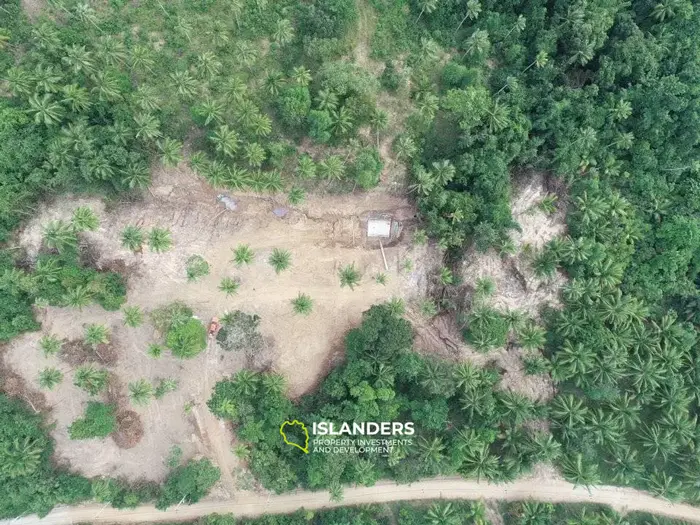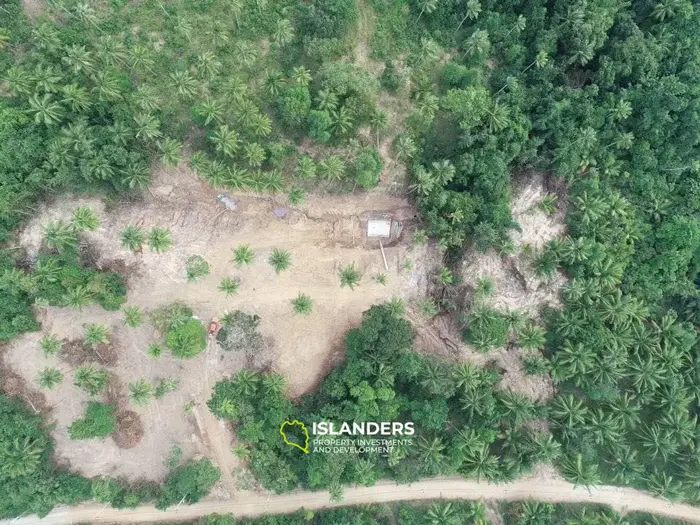Traveling with pets requires careful
preparation, especially when it comes to international travel. Bringing a pet
into Thailand is a process governed by strict veterinary and customs
regulations. The country's authorities have special requirements for the
health, vaccination, and documentation of animals, so it is important to
familiarize yourself with the current regulations in advance to avoid problems
at the border.
The owner must be prepared for the fact
that without properly completed documents, the animal may be quarantined or
even returned to the country of departure. It should also be taken into account
that the list of breeds permitted for import and vaccination requirements may
change, so it is better to start preparing in advance. Obtaining the necessary
certificates and permits takes a certain amount of time, and if the deadlines
are not met, traveling with a pet may be impossible.
To ensure your trip goes smoothly, it is
important to complete all the paperwork in advance, check the airline's rules
for transportation, and familiarize yourself with customs procedures. This
article will help you understand all the nuances of importing animals to
Thailand to avoid unpleasant situations when crossing the border.
Basic requirements for importing animals
into Thailand
The import of pets into Thailand is
regulated by the Department of Livestock Development (DLD). Violation of the
established rules may result in refusal of entry or quarantine of the animal.
Basic requirements:
Animals permitted for import: cats, dogs.
Other species (birds, reptiles, rodents) require additional permission from
DLD.
Minimum age of the animal: not less than
4 months. Young animals that have not been vaccinated against rabies are not
allowed to be imported.
Prohibited dog breeds:
●
American Pit Bull Terrier;
●
American Staffordshire Terrier;
●
Tosa Inu.
Prohibited cat breeds:
●
Savannah;
●
Chausie;
●
Bengal cat (no verified pedigree).
Animals that do not meet the requirements
may be deported back or placed in quarantine until all circumstances are
clarified.
Documents required to import a pet
To successfully cross the border with an
animal, a number of documents will be required. They must be completed within
the specified time frame, otherwise entry will be impossible.
|
Document |
Description |
Processing
period |
|
International Veterinary Passport |
Must contain information about the
animal's vaccinations and health. |
It is issued in advance. |
|
Rabies Vaccination Certificate |
Mandatory, vaccination must be done at
least 21 days before the trip, but not older than 1 year. |
At least 21 days before entry. |
|
Health Certificate (Veterinary Health
Certificate) |
Confirms that the animal is healthy and
fit for transport. |
Issued 10 days before departure. |
|
Import Permit (DLD Import Permit) |
Issued by DLD (Department of Livestock
Development) after review of the application. |
At least 15 days before travel. |
|
Microchipping |
Mandatory requirement: The chip must
comply with the international standard ISO 11784/11785. |
Must be completed prior to vaccination. |
All documents must be in English or
accompanied by a certified translation.
The process of obtaining a DLD Import
Permit
To import an animal into Thailand, a
special permit issued by the Department of Livestock Development (DLD) is
required. An application for it is submitted online on the official website DLD .
The registration process includes several
stages:
- Filling out an online application on the DLD website and uploading
the required documents (pet passport, vaccination certificate, owner
information).
- Application
review (takes up to 15 days).
- Receiving
confirmation and printing of DLD Import Permit (the document is valid for
60 days from the date of issue).
- Presentation of the permit at the border along with other
documents.
It is important to check the status of
your application on the DLD website in advance and, if necessary, clarify
details with your veterinary service representative.
Requirements for air travel with animals
Before booking tickets, you must make
sure that the airline allows the transportation of animals and familiarize
yourself with its conditions.
|
Criterion |
Description |
|
Transportation in the cabin |
Allowed on some airlines for small
animals (usually up to 8 kg with carrier). Advance booking required. |
|
Carriage in the luggage compartment |
Larger animals require special
temperature controlled compartments. A rigid container with ventilation is
required. |
|
Carrying requirements (IATA) |
The carrier must be airtight, spacious,
with sufficient air access. The dimensions and materials comply with IATA
standards. |
|
Transit rules |
If the flight is a connecting flight, it
is important to clarify whether it is possible to leave the transit area. In
some airports, it is prohibited to let the animal out of the container. |
|
Quarantine zones at airports in Thailand |
In some cases, the animal may be
quarantined (for example, if the documents are not completed correctly). It
is important to clarify the conditions in advance. |
Before your flight, it is recommended
that you check with your specific airline to ensure that all conditions comply
with animal transportation standards.
Customs control and entry into Thailand
Upon arrival in Thailand with an animal,
you will need to go through customs control and veterinary inspection. Violation
of the established rules may result in the deportation of the animal or its
placement in quarantine.
The procedure for registering an animal
at the airport includes the following steps:
●
After exiting the plane, head to
the Animal Quarantine Office area located at Thailand's international airports.
●
Present the DLD Import Permit,
veterinary documents and the animal's passport.
●
Veterinary control checks the
chip, the condition of the pet and the compliance of the documents with
requirements.
●
If all documents are in order, an
import permit is issued and you can go to customs.
Quarantine is applied in the following
cases:
●
If the animal does not have all
the necessary documents or they are incorrectly completed.
●
If the pet looks unhealthy, even
if there are certificates.
●
If lice, ticks or skin diseases
are detected.
●
If there is no proof of
vaccination or microchipping.
Cost of registration upon entry into
Thailand:
●
Document check at the airport: from
100 to 500 baht.
●
Quarantine (if required): up to
500 baht per day.
If you do not have all the documents:
●
You can obtain a temporary import
permit subject to the condition that the missing certificates are completed
within 7 days.
●
In case of serious violations, the
animal may be quarantined or deported at your expense.
Limitations and nuances
Some animals are prohibited from being
imported, and special rules apply for exotic pets.
|
Category |
Description |
|
Prohibited dog breeds |
American Pit Bull Terrier, American
Staffordshire Terrier, Tosa Inu. |
|
Prohibited cat breeds |
Bengal cat (without documents),
Savannah, Chausie. |
|
Is it possible to import exotic
animals? |
Permits are required for reptiles,
birds, rodents. Applications are submitted to the DLD. |
|
Peculiarities of import during
long-term relocation |
For long-term stays in Thailand with an
animal, it is necessary to renew veterinary certificates annually. |
Import of exotic animals requires a
separate permit from DLD and CITES (Convention on International Trade in
Endangered Species of Wild Fauna and Flora).
Export of animals from Thailand
To export a pet from Thailand, you must
go through a number of formalities, including obtaining permits from the DLD.
What documents will be required:
●
Veterinary health certificate
(issued by DLD 3-7 days before departure).
●
Vaccination certificate (must be
current, depending on the destination country).
●
Export Permit issued by DLD.
The process of obtaining certificates
from DLD before departure:
- A few days before departure, visit the DLD Veterinary Office and
submit an application for export.
- Have your
pet examined and obtain medical certificates.
- Obtain an Export Permit, without which the animal will not be
allowed to fly.
Features of export of rare breeds and
exotic animals:
●
Additional permits may be required
to export rare breeds of dogs and cats.
●
Reptiles, birds and rare animals
must comply with CITES requirements, otherwise export is prohibited.
Useful links and contacts
Official websites
●
DLD (Department of Livestock
Development): https://www.dld.go.th/
Contacts of veterinary control at airports in Thailand
●
Suvarnabhumi (Bangkok): +66 2 134
0731
●
Phuket: +66 76 328 400
●
Chiang Mai: +66 53 922 109
List of airlines that allow
transportation of animals
●
Thai Airways – in baggage and
cargo
●
Qatar Airways – in cabin and baggage
●
Emirates - Cargo Only
●
Aeroflot – in the cabin and in
baggage
Conclusion
Bringing an animal into Thailand is a
process that requires advance preparation. It is important to obtain all
veterinary documents in advance, including an international passport, health
certificates, and an import permit from DLD. Compliance with these requirements
will help avoid problems at the border and quarantine restrictions.
Traveling with a pet should be safe and
comfortable, so before departure, you should also clarify the rules of
transportation with the airline and check the current entry regulations. If you
plan to leave the animal in Thailand for a long time, regular updating of
certificates and monitoring of the pet's health will be required.
Before your trip, it is recommended to visit the official DLD website to familiarize yourself with the latest changes in the rules and to make sure you have all the necessary documents. This will help to avoid unpleasant situations when crossing the border and ensure a smooth journey for your pet.






